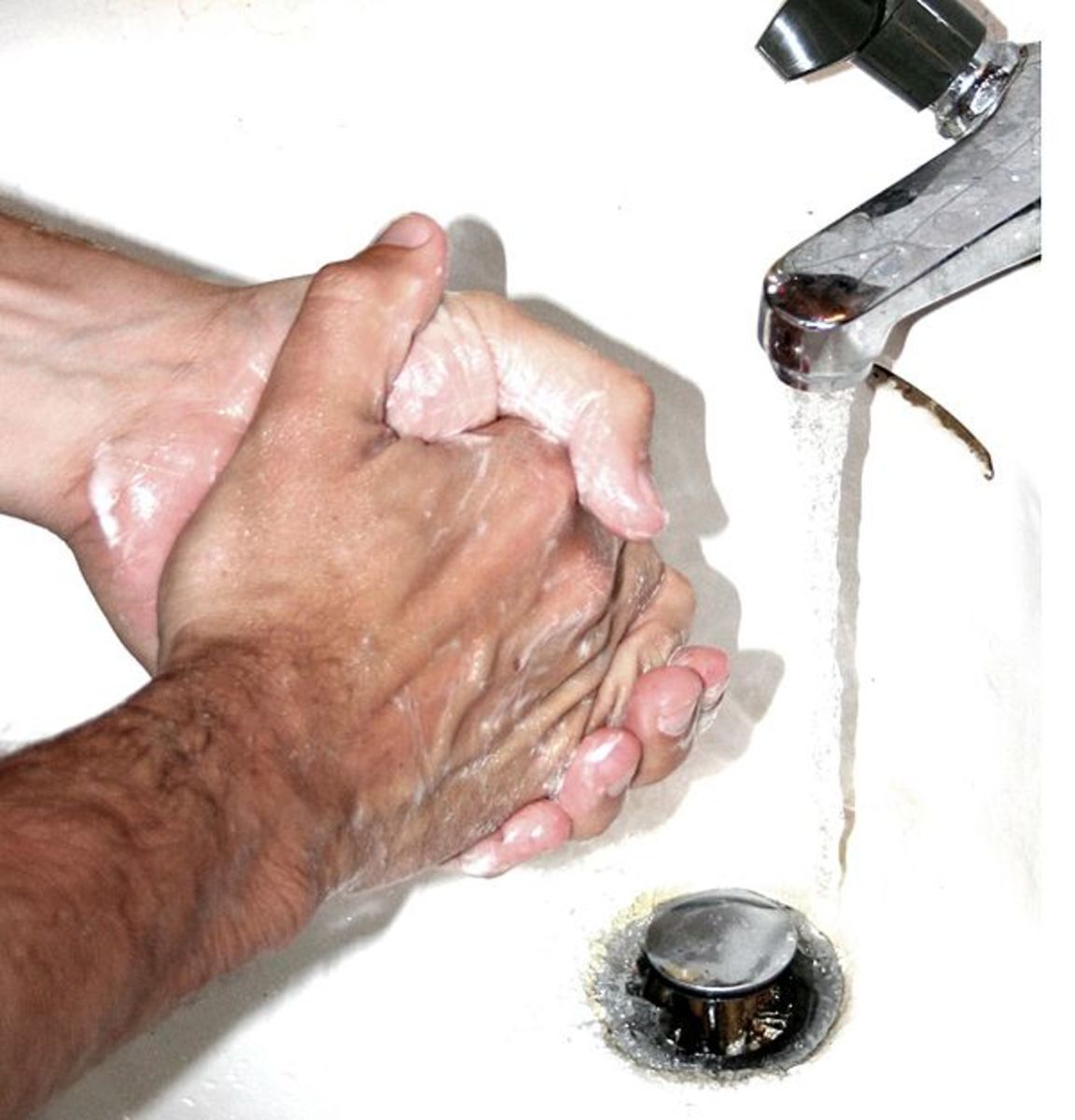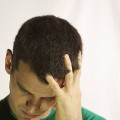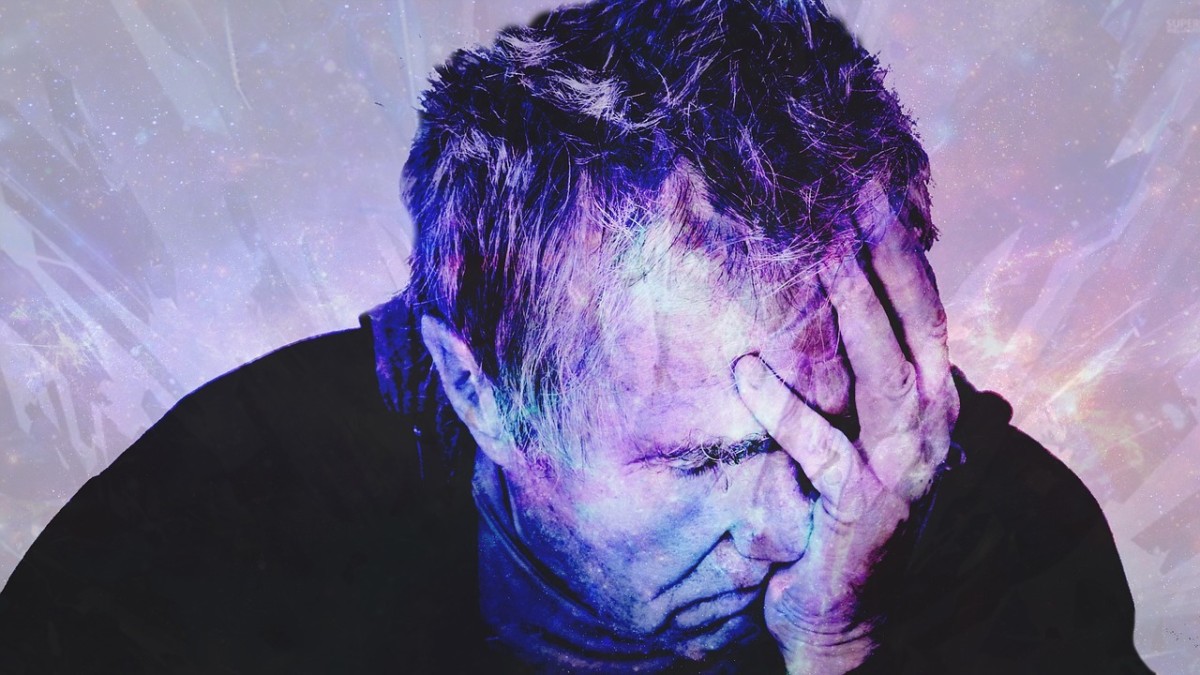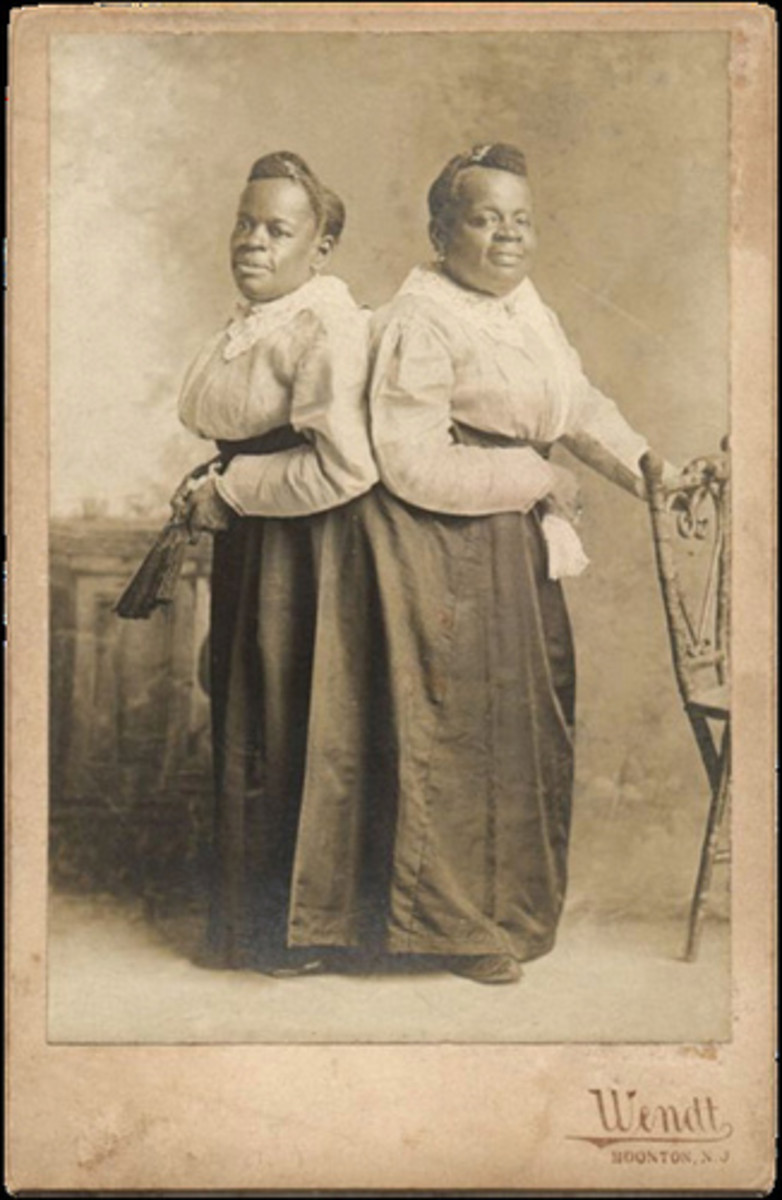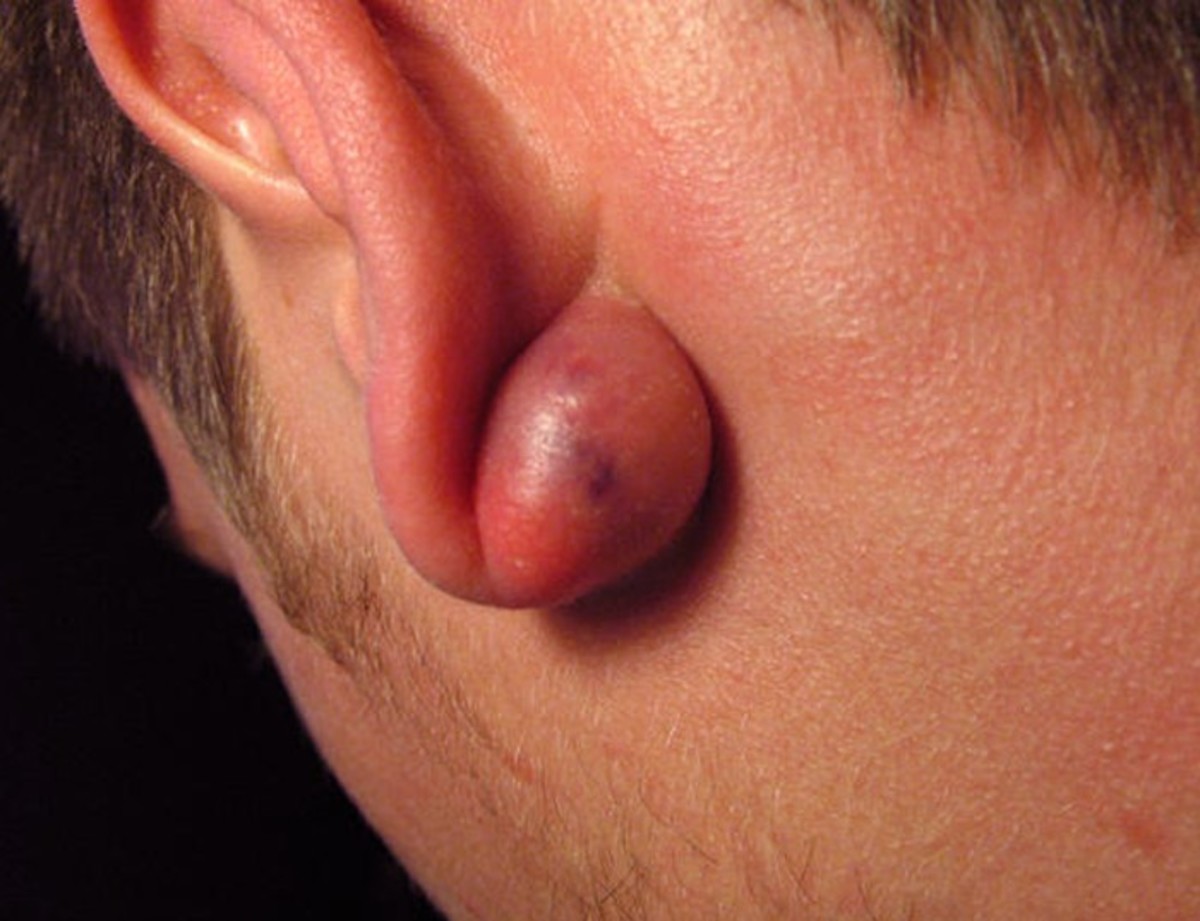OCD (Obsessive Compulsive Disorder): So You Think I'm Crazy... I'll Show You Crazy
What OCD Is NOT!
Much of our current population has a twisted understanding of what Obsessive Compulsive Disorder is. This is mainly due to the movies and TV shows that have made OCD into a strange mental illness that is often used to create comedic moments. OCD has become so prevalently used for comedy on sitcoms and movies that society has no idea what it really feels like to suffer from OCD. OCD (Obsessive Compulsive Disorder) is no laughing matter and it is a very serious and debilitating metal illness that an individual cannot control. As a person that suffers from a combination of OCD, anxiety, and depression; nothing makes me angrier than listening to random individuals say “I’m a little OCD” , when they have absolutely no idea what it is like to really have Obsessive Compulsive Disorder. Some individuals make OCD as trivial as having a certain way they clean their house, or set up their desk, or the way they prefer even numbers. Trust me if a person really has OCD they know something is seriously wrong with the way they are thinking. Most people with OCD realize that the thoughts going through their minds are irrational. So for those individuals who state “I’m a little OCD” on a whim without thinking, I have one thing to say to them…. “I would never wish OCD on anyone… not even my worst enemy.”
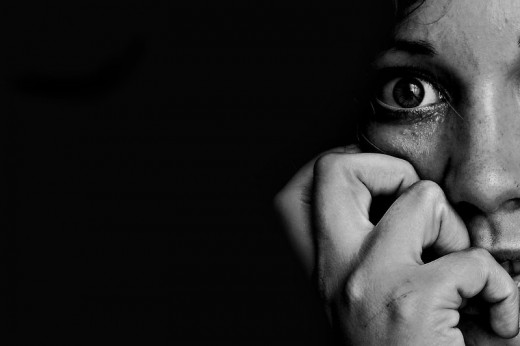
Clinical Terms for OCD
Obsessive Compulsive Disorder is defined by helpguide.org as an anxiety disorder characterized by uncontrollable unwanted thoughts and repetitive, ritualized behaviors you feel compelled to perform. If an individual has OCD, it’s similar to a needle getting stuck on an old record; the individual’s brain and thoughts continue to obsess over a certain thought, urge, or moment continually.
These obsessions/thoughts are involuntary and not easily controlled by the individual. The individual does not want to have these thoughts but they cannot stop them. The thoughts can often cause extreme disarray in one’s life and cause the individual to no longer live a fulfilling life because they are in fear of triggering an obsession.
The obsessive thoughts are not the worst part of OCD. The compulsions are what make OCD so debilitating. Compulsions are defined by helpguide.org as behaviors or rituals that an individual feels uncontrollably driven to act out again and again. The compulsions are acted out repeatedly in order to relieve the anxiety a person is feeling from the obsessive thought in their mind. The individual is literally stuck in an endless cycle of repetitive thoughts and the repeated acting out of rituals again and again. The cycle never ends. Individuals with OCD are actually living in a constant state of fear and anxiety, while at the same time they know their thoughts are illogical. Individuals with OCD know that what they are thinking makes no sense and sounds crazy but their mind, fear, and anxiety is driving them to perform these rituals. Some rituals that are used to alleviate the obsessive thoughts, fears, and anxieties can take hours to perform and on top of that the rituals only offer temporary relief to the obsessive thoughts.
Do you know someone with OCD?
Symptoms of OCD
According to webmd.com, common obsessions include:
-
Fear of dirt or contamination by germs
-
Fear of causing harm to another
-
Fear of making a mistake
-
Fear of being embarrassed or behaving socially unacceptable manner
-
Fear of thinking evil or sinful thoughts
-
Need for order, symmetry, or exactness
-
Excessive doubt and the need for constant reassurance
However, do not be misinformed. Just because you fear the above things there is more to OCD. It’s not just a fear, it’s a debilitating fear, a fear that runs again and again in your head like a song on replay every second of the day. Also, in addition to that fear you have an unexplained fear that a terrible consequence may happen if you do not perform a compulsion to ease the obsessive fear. For example, if I don’t wash my hands three times, I’m not clean enough so I will contaminate my family with my filth and they may die. This is the type of nonsensical thought that goes through an individual’s mind when they have OCD.
Common Compulsions/Rituals an individual may have to perform over and over again sometimes for hours are the following. According webmd.com
-
Repeatedly bathing, showering, or washing hands
-
Refusing to shake hands or touch doorknobs
-
Repeatedly checking things, such as locks or stoves
-
Constant counting, mentally or aloud, while performing routine tasks
-
Constantly arranging things in a certain way
-
Eating foods in a specific order
-
Being stuck on words, images, or thoughts, usually disturbing, that won’t go away and can interfere with sleep and everyday life
-
Repeating specific words, phrases, or prayers
-
Needing to perform tasks a certain number of times and in a certain order
-
Collecting or hoarding items with no apparent value

A Chemical Imbalance in the Brain
Special chemicals, called neurotransmitters, help move electrical messages from neuron to neuron in the brain. Research has found that low levels of serotonin, and individuals with OCD strongly correlate together. This serotonin imbalance is said to be the cause of the many symptoms of OCD and the irrational thoughts individuals have. The parts of the brain that seem to be affected by the serotonin imbalance are usually the parts of the brain that control judgment and planning. An individual with OCD basically has a malfunctioning brain that is sending the wrong messages from neuron to neuron, this is not something that somebody can control or change without the aid of therapy or medication. The low levels of serotonin may be inherited and passed from generation to generation. So this means OCD may be inherited. In fact according to healthyplace.com those with first degree relatives with OCD are five times more likely to develop the disorder. Other disorders associated with OCD include: ADHD, anxiety disorders, ADD, eating disorders, and depression.
Helpguide.org states that most people with obsessive-compulsive disorder (OCD) fall into one of the following categories:
-
Washer are afraid of contamination. They usually have cleaning or hand washing compulsions.
-
Checkers repeatedly check things (oven turned off, door locked, etc.) that they associate with harm or danger.
-
Doubters and Sinners are afraid that if everything is perfect or done just right something terrible will happen or they will be punished.
-
Counters and Arrangers are obsessed with order and symmetry. They may have superstitions about certain numbers, colors, or arrangements.
-
Hoarders fear that something bad will happen if they throw anything away. They compulsively hoard things that they don’t need or use.
The most important thing to remember is the following: YOU DO NOT HAVE OCD UNLESS THE ABOVE COMPULSIONS CAUSE A SEVERE DISRUPTION IN YOUR LIFE, or SEVERE DEBILITATING FEAR, OR A CHANGE IN THE QUALITY OF YOUR LIFE. Simply liking a certain number is not OCD. Cleaning your bathroom every Tuesday is NOT OCD.
Getting Help for Obsessive Compulsive Disorder
Individuals must seek help for their OCD. You must first get over the thought that you are CRAZY!!! You are not crazy! There is a perfectly good scientific explanation for what is happening within your mind. An individual with OCD must realize that living their life to the fullest and without fear is more important than living in constant fear. What kind of life has the OCD individual been living anyway. It isn’t a complete and happy life. Individuals must get over the embarrassment and the stigma associated with taking antidepressants or seeing a therapist. The serotonin levels in your brain may need the assistance of an antidepressant (even if you are not depressed) to help bring your levels up to normal. Also, the way your brain has been thinking needs to be retrained which involves two types of therapy. Exposure and Response Prevention and Cognitive Behavioral Therapy.
Exposure and Response Prevention involves repeated exposure to the source of your obsession, then you must force your brain and body to not perform the compulsion/ritual, which is a very difficult thing for a person with OCD. You must remember their brains are telling them to perform the ritual or else something terrible will happen. A person with OCD is literally battling part of their brain with other parts of their brain. You are fighting yourself. Your logical brain is telling malfunctioning part of your brain to be quiet. This is can be very difficult when both halves are equally strong and persuasive.
Cognitive Behavior Therapy focuses on the catastrophic thoughts and exaggerated sense of responsibility an individual may feel. This type of behavior focuses on the part of your brain that knows that your thoughts are wrong. Individuals must face and think about… “What is really going to happen if I do not perform this ritual to alleviate my obsessive thoughts?”
Group Therapy and Family Therapy can be very helpful for individuals with OCD. Group Therapy allows individuals to see they are not alone. There are many other individuals dealing with the same or simialr issues as you. Family Therapy is positive because loved ones gain a better understanding about the disorder, and they learn techniques to help their loved one with OCD. Families also learn how to stop enabling or reassuring the individual with OCD because whether the family member realizes it or not, they are actually helping the OCD obsessions to grow stronger.
In closing OCD is a very prevalent mental illness but it is still a highly misunderstood mental illness. A large stigma is still associated with receiving therapy and taking medication. Many individuals instead choose to live their lives in fear and in hiding. Hoping that no one finds out about their OCD because they are embarrassed and afraid to be stigmatized.



